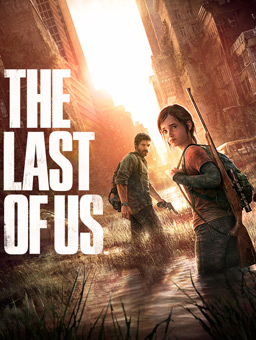Games targeting an adult audience increasingly feature intricate storylines and complex characters. Titles like “The Last of Us Part II” and “Cyberpunk 2077” set high standards in storytelling, and there seems to be no letting up on the creative gas pedal at this point.
Gone are the days where video games represented simplified entertainment. When gaming began, the focus was heavily on game mechanics; and rightfully so. In order to sell games, you need to have both mechanical and visual hooks.
The game must be fun to play, and awesome to look at.
But often left behind was the storytelling aspect that makes some of today’s modern games so compelling. Pac Man was fun in a mechanical way, some might even say addicting, but there wasn’t a story to it all. There was no narrative hook that gave rise to your curiosity, or invested you emotionally.
When we think about it, we’ve always associated storytelling on the visual level with Hollywood movies and TV series. Not games.
But today, sophisticated narratives in video games often rival movie land. So much so, that adaptions both ways are becoming much more frequent.
Games such as Bioshock and Mass Effect were two of the first to explore more complex themes. This led gamers to expect a bit more from their gaming experience than upgraded mechanics.
Today, The Witcher 3: Wild Hunt and Red Dead Redemption 2 are just a couple of titles where storytelling is a core capacity of the game. They explore deeply personal stories and develop characters and create moral dilemmas.
And this is blurring the line between Hollywood movies and games.
Gamers now expect many games to feature engaging tales. And this has had the double effect of attracting new audiences to the gaming world.
Character Decisions Infuse Stories With More Complexities
For the most part, you can’t influence the end of a movie. The movie’s story is what it is. You can love or despise the end, but you can’t change it.
That’s because movie storytelling happens in a linear way. But video games often allow players to reshape the story by way of character decisions.
By making choices for characters, a gamer can influence a character’s development and ultimately, where the plot goes.
A great example is The Witcher 3, which allows players to make numerous decisions in an open world setting. These decisions can lead the gamer into dire straights, or riches.
Another attractive element in this style of decision based storytelling is that it makes the game re-playable. You may want to watch a movie again and many of us do, but we do so with the understanding it ends the exact same way. But games like The Witcher 3 offer an ability to change not only the end, but the storyline leading up to the end.
And this is a big selling hook for the gaming industry.
In gaming, player decisions matter. They are critical. This makes increases not only the fun in playing these games, but likewise, the value of the game.
The Future of Video Game Storytelling
Storytelling in video games is only going to evolve from here. One major influence in this area will undoubtedly be Augmented Reality (AR) and Virtual Reality (VR). Both allow gamers to further immerse themselves in video game experiences which will lead to increased complex narratives to support that immersion.
Bigger computer processors and beefed up consoles, along with 5G connectivity, are more technologies likely to increase complex storytelling. All of these technologies will serve to increase the responsiveness of hardware through faster connections and better onboard tech packages. In other words, developers will be able to vastly improve games, which means increasing storytelling complexity to support more potent visual experiences.
There’s not much doubt that storytelling in gaming benefits both the player and the development company. This alone means it isn’t going anywhere. Technologies such as AR and VR will further enhance video game storytelling well into the future.
